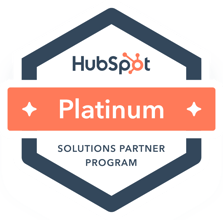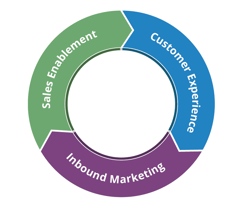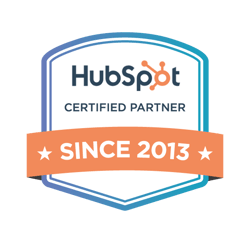 The business use case for CRM software has grown quite a bit in recent years. The reason is because of the the need for improved collaboration and communication across teams. CRMs help small, mid-sized, and enterprise companies focus on collecting, storing, and leveraging data about customers and prospects all in one place so there is a central hub for all of this information across departments.
The business use case for CRM software has grown quite a bit in recent years. The reason is because of the the need for improved collaboration and communication across teams. CRMs help small, mid-sized, and enterprise companies focus on collecting, storing, and leveraging data about customers and prospects all in one place so there is a central hub for all of this information across departments.
What is CRM Software?
CRM is an acronym for Customer Relationship Management. CRMs streamline communications and business processes across your organization. A CRM is designed to help you to improve your customer service by tracking relationships and contact. In addition, because a CRM makes it easier to track all aspects of communication for a business, it is incredible impactful for marketing. For example, you can use a CRM as lead distribution software, to assign a lead from a website to a specific member of staff who needs to follow up on it. You can also set reminders and keep a track of your communications. In addition, you can track all marketing communications such as emails opened, website visits, and even social media interactions.
5 Reasons Why CRM Software Helps Strengthen Team Collaboration
1. Helps You to Stay Organized
This is one of the most obvious benefits of CRM. Even if you are just starting your business, you need to be organized. As your business grows, this becomes even more essential. A CRM helps organizations with managing employee tasks to customer relationships.
2. Allows Easy Access to Data
CRMs help you build a database to easily track and analyze your prospect and customer data. Customers or clients may have their own “profile” or page within the CRM that lets you access and even export all of the data you need. This can be used to spot trends, generate charts and graphs, and make adjustments from that data quickly and efficiently.
3. Promotes Simple Communication
Most CRMs have a communication system within them for collaboration. As well as being able to chat with other people in your team, you can assign tasks and mark these as in progress or complete. In addition, you can tag colleagues and contacts to ask them to check something or update you on the status of a project.
4. Helps With Training Employees
A CRM is inherently “transparent” in that those who are administrators can see everything that is going on within an organization. There is also a record of almost everything that has happened. For this reason, it is a great way to onboard new employees. You can show them the work of colleagues or even have them “shadow” someone within the business on the CRM to quickly understand how it works, and the business processes you follow.
5. It Centralizes Your Business and Marketing
A recent study that found that most users of a CRM reported a 25% increase in marketing ROI. That can make a significant impact on your business bottom line, and shows how CRM marketing can help you to take your own business to the next level. The reason for this jump in ROI is because marketers can then track exactly how a prospect entered the CRM, what campaign drove them to convert, how long it took them to become a customer, and much more. Instead of people working on their own computers and email accounts and having to update each other independently, using CRM software as your centralized hub means that all of the information is available for those who need to see it.
How to Choose The Right CRM Software For Your Business
The best way to find the right CRM for your business is to fully understand the requirements of your business and to match up these needs with software. For example, you may need something that can easily allow you to assign tasks and make it easy for management to set tasks for their teams. You may also prioritize other features such as mobile usability. If your team spends a lot of time traveling or needs to input data on an app then this might be a feature you decide you require. If you're looking to try a CRM, HubSpot has a completely free CRM available to any size organization. You can click here to sign up for free (and it's free forever!)
91% of businesses with 12 or more employees use a CRM. This shows how mainstream they have become, and there are numerous reasons for this. A CRM is an essential way to track sales activity, assign tasks, and streamline your business. If you're looking to discuss ways your CRM can be optimized or leveraged for marketing and sales collaboration, we invite you to schedule a complimentary consultation.

Guest Author: Mike Austin is a marketing and creative content specialist at Adrack.com and working in the Digital Marketing industry since 2009. As a conversion-driven marketer, he is passionate about helping businesses expand their online visibility and reach their goals.

.png?width=80&height=80&name=diamond-badge-color%20(1).png)





.png?width=250&name=diamond-badge-color%20(1).png)
